Rotator Cuff Repair
The function of the rotator cuff, a group of muscles and tendons, is to stabilise the shoulder joint. Every time you move your arm your rotator cuff keeps the head of your upper arm bone, the humerus, in the shallow shoulder socket.
If you have difficulty lifting your arm, or it is painful to do everyday tasks such as combing your hair, you may have a rotator cuff tear. Other symptoms include a dull ache deep in the shoulder, weakness in the arm and disturbed sleep.
Rotator cuff injuries can be acute, coming on suddenly due to injury, or can be chronic, causing pain over a long period of time due to the degeneration of the tendons. Acute rotator cuff injury can happen to anyone, usually due to a sudden movement or playing sports. Chronic rotator cuff injury typically effects people in their 40’s and 50s with an active lifestyle, but becoming more susceptible to injury due to wear and tear. It is also common in people who have manual jobs, particularly that involve a lot of overhead work.
Rotator cuff repair surgery is available at One Hatfield Hospital in Hertfordshire, where we are perfectly located to treat patients from Hemel Hempstead, St Albans, Watford, and all nearby areas.
Diagnosis and Treatment
Following a physical examination, imaging tests will confirm a rotator cuff diagnosis. An x-ray won’t show a rotator cuff tear but will eliminate any problems with the joint or bones. Ultrasound and MRI will show the more detailed soft tissue structure.
There are non-surgical options that would usually be recommended before surgery. They are:
- Resting the arm in a sling and applying cold packs
- Anti-inflammatory medication
- Exercises to restore strength and range of motion
- Steroid injections to reduce inflammation
Surgery would be recommended if all of the above have been tried with limited or no improvement.
Surgery
Surgery to repair a torn rotator cuff usually involves reattaching the tendon to the head of humerus. Although where a tear is partial, a trimming procedure called a debridement might be sufficient. There are different surgical options for repairing rotator cuff tears, and the extent of the tear will determine which is the most suitable. In most cases an arthroscopic repair is suitable. An open tendon repair may be a better option if the tear is very large or complex because the incision allows your surgeon greater access. Healing time following surgery is the same for each but recovery from an open repair is likely to be more uncomfortable. If the rotator cuff injury is severe, shoulder replacement surgery may be required.
Arthroscopic and open repairs are performed under general anaesthetic. The length of the operation will depend on the number of tendons involved.
During an arthroscopic repair the surgeon inserts an arthroscope, a tiny camera, and tools through small incisions in the shoulder. Fluid is passed into the shoulder to allow the surgeon to look at the structures within it. Any debris or fragments are removed, then special bone anchors are then used to reattached the torn tendon back to the bone.
For open surgery, an incision is made on the side of the shoulder. The shoulder muscle is detached to allow access to remove any debris or fragments, then reattach the torn tendon to bone with sutures.
After Surgery
You will be closely monitored after surgery and you will usually be able to go home the same or next day. Your arm will be in a sling to keep the shoulder immobilised. During the operation you will be given an injection of local anaesthetic so your arm will feel numb for several hours. You should take pain medication before the anaesthesia wears off, and keep taking this medication regularly to keep the pain under control. Your wounds from an arthroscopic repair will be very small and will heal within a couple of weeks. Open repairs will use stitches which can be removed after 2 weeks if they are not dissolvable.
The recovery time following rotator cuff repair surgery takes some time and it will be several weeks before you begin to feel the benefits. You will need to continue wearing a sling for at least 3 weeks following surgery to keep movement to a minimum and allow the repair to heal. After 3 weeks you can slowly reduce the time your arm is in the sling and you will be able to start very light, regular physiotherapy. Your consultant will assess your progress at a follow up appointment 6 weeks following surgery. Depending on the extent of your surgery and your progress, your consultant will advise if you are able to begin strengthening exercises, return to driving, and return to work. You will need longer off work if your job is manual.
any debris or fragments, then reattach the torn tendon to bone with sutures.
Lower Trapezius Tendon Transfer
Patients with large rotator cuff tears or following re-rupture of a repaired tendon may not be suitable for this procedure. Lower trapezius tendon transfer may be an option.
Rotator Cuff Repair Explained
Need Help?
Rotator cuff surgery is available at One Hatfield Hospital in Hertfordshire. We can book you in to see a specialist Orthopaedic Shoulder surgeon for an initial consultation, usually within 48 hours. Our hospital is perfectly located to treat patients living in Hatfield, St Albans, Stevenage, Hemel Hempstead, Welwyn, Watford, and all areas throughout Hertfordshire and North London.
You can use your private medical insurance or pay for your Rotator Cuff Repair treatment. We offer competitive, fixed price packages. If you are using your health insurance, please contact your insurer first for approval and let them know you’d like to be treated at One Hatfield Hospital.
Why One Hatfield
- Modern purpose-built hospital opened in December 2017
- 0% and low finance options**
- Fast access to diagnostics including MRI, X-ray and Ultrasound
- Private, spacious, en-suite rooms
- Specialist physiotherapy and nursing teams
- Little or no waiting time
- ‘Ultra clean air’ theatres
- Freshly prepared food
- Calm, dignified experience
**Terms and conditions apply
Contact us and find out more
If you are based in and around Hertfordshire, St Albans, Stevenage, Watford, Barnet, North London, Welwyn or Bedfordshire and would like to visit the One Hatfield Hospital please click here.
Orthopaedics Pricing Guide at One Hatfield Hospital
This is a list of guide prices for some of common Orthopaedics treatments and procedures.
| Treatment | Guide Price from |
|---|---|
| Hand and Wrist | |
| Carpal Tunnel Release - One Wrist | £2,350 |
| Excision of Ganglion | £2,309 |
| Shoulder | |
| Shoulder - Rotator Cuff Repair | £8,115 |
| Foot and Ankle | |
| Bunion Removal - One Foot | £6,500 |
| Knee | |
| Knee - Anterior Cruciate Ligament Repair (ACL) | £12,495 |
| Multiple Knee Arthroscopy | £5,000 |
| Knee - Replacement | £16,100 |
| Hip | |
| Hip - Replacement | £15,770 |




 One Ashford
One Ashford One Hatfield
One Hatfield